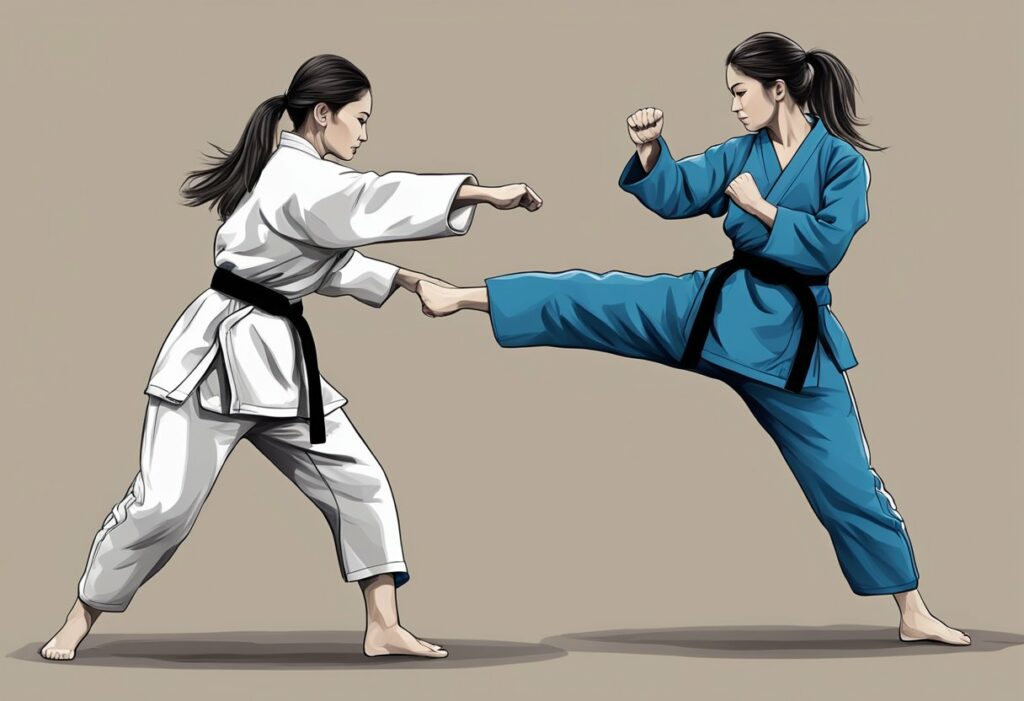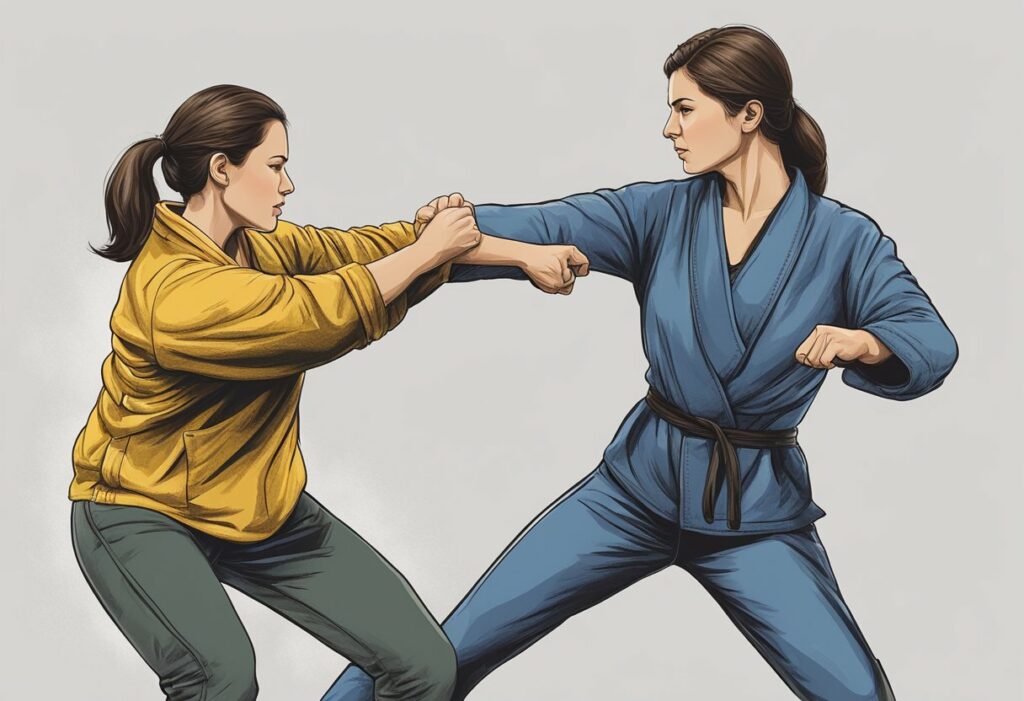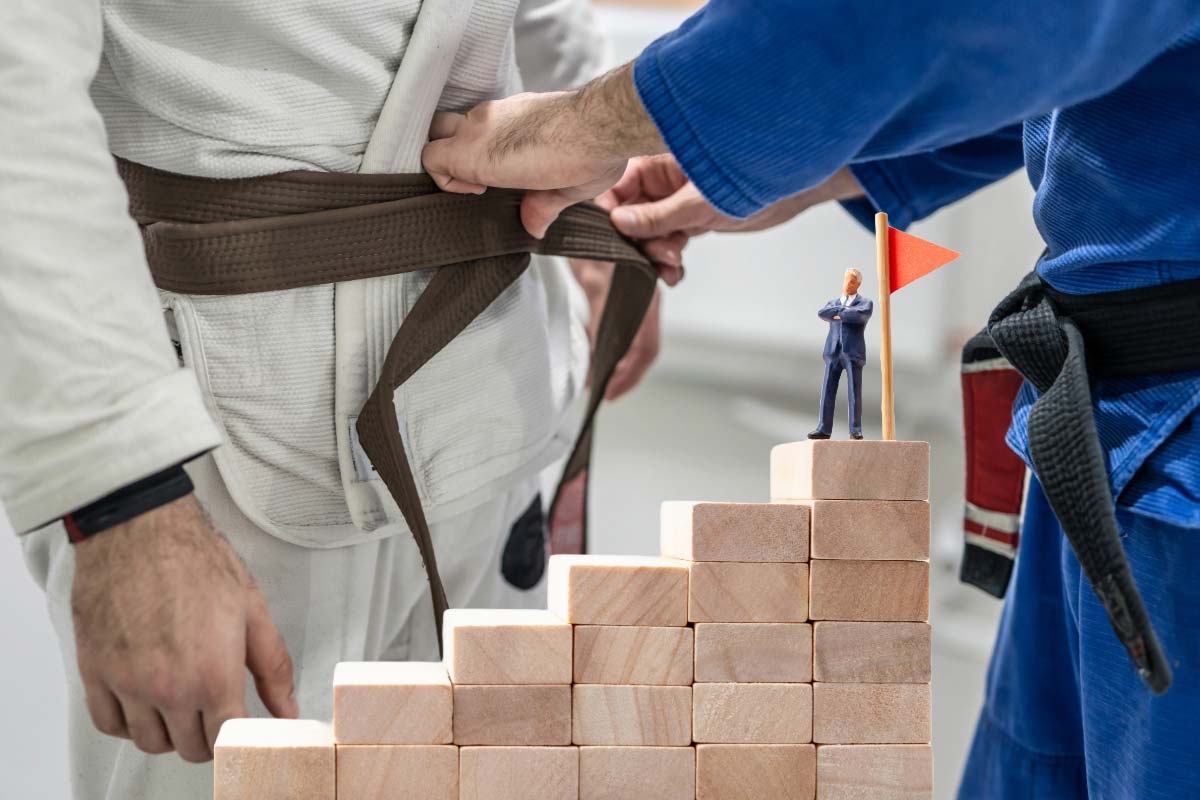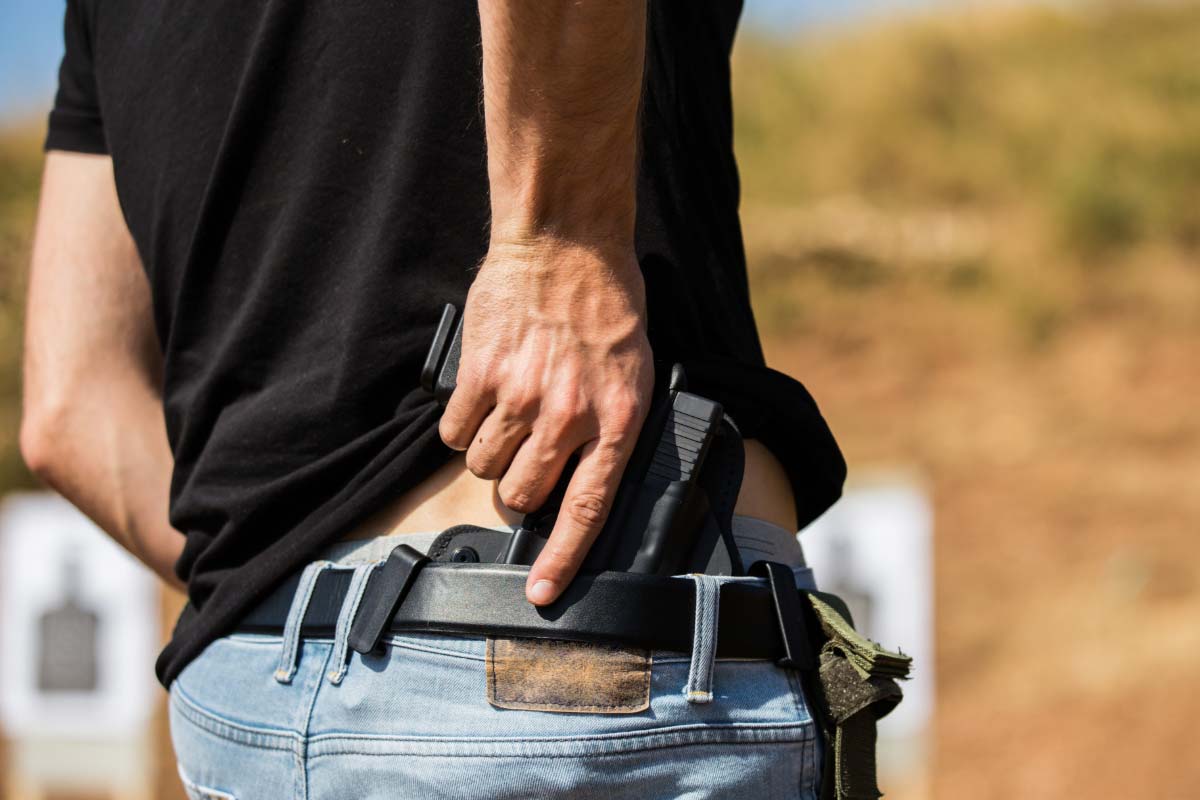Ladies, do you want to feel empowered? Do you want to be confident in your ability to defend yourself?
Our guide walks you through the best martial arts and practices tailored for women’s self-defense.
Straightforward and practical, these disciplines are about real-world tactics that work. Learn how self-defense training will boost your confidence and give you the skills to defend yourself effectively.
Whether you’re new to self-defense or looking to expand your skills, these recommendations will set you on the path to personal safety and new found confidence.
This article covers:
Understanding the Need for Self-Defense
Women face a unique set of challenges when it comes to personal safety. Assault, rape, and sexual harassment are all too common, and it is important for women to be aware of these dangers and take steps to protect themselves.
Awareness is key to prevention. Women must be aware of their surroundings and be able to recognize potentially dangerous situations. They must also be able to set and enforce personal boundaries to protect themselves from unwanted advances.
Self-defense is not just about physical strength. It is also about mental and emotional strength. Women must have the confidence and knowledge to stand up for themselves and defend themselves if necessary.
Learning self-defense techniques can be empowering for women. It can give them the tools they need to protect themselves and feel more confident in their ability to handle dangerous situations.
Overall, understanding the need for self-defense is crucial for women’s safety and well-being. By being aware, setting boundaries, and learning self-defense techniques, women can take control of their personal safety and protect themselves from harm.
Steps to Learning Self-Defense
Learning self-defense can be an empowering experience for women.
Here are some steps to help get started:
- Research self-defense classes in your area. Look for classes that focus on practical techniques and are taught by experienced instructors.
- Attend a self-defense class. It is important to find a class that fits your schedule and budget. Many classes offer a trial period, which can help you determine if the class is a good fit for you.
- Learn basic self-defense moves. Techniques such as the groin kick can be effective in stopping an attacker. Krav Maga is a popular form of self-defense that focuses on practical techniques.
- Practice regularly. Self-defense requires muscle memory, so it is important to practice regularly to ensure that techniques become second nature.
- If the classroom setting sounds too intimidating, seek personal self-defense lessons in the comfort of privacy. Personal self-defense training will help you build confidence quickly if you decide to later attend group classes.
- Take up firearms training and consider carrying a concealed weapon.
By following these steps, women can gain the confidence and skills needed to defend themselves in potentially dangerous situations.
Recommended Martial Arts Disciplines for Women’s Self-Defense

Martial arts can be an effective way for women to learn how to protect themselves. There are several martial arts disciplines that are particularly well-suited for women’s self-defense, but we’ll focus on the most commonly recommended disciplines.
Krav Maga
One popular option is Krav Maga, a comprehensive self-defense system. Krav Maga emphasizes practical techniques that are easy to learn and can be used in real-world situations. It also focuses on using the body’s natural movements to defend against attackers.
After training a few months in Krav Maga, you’ll have a foundational understanding of basic striking and defenses. You’ll learn how to defend against chokes and learn to turn on your aggression. As you advance, you’ll learn to deal with defending against hair grabs, someone mounted on top of you, and other stressful or violent scenarios.
Your mindset will start to switch from a victim mentally to a fighting for survival mentality. This is a very empowering experience.
Brazilian Jiujitsu (BJJ)
Another option is Brazilian Jiu-Jitsu, a grappling-based martial art that emphasizes leverage and technique over brute strength. It can be particularly effective for women, who may not have the same physical strength as their attackers.
Jiujitsu relies on an understanding of position and leverage. This can neutralize the advantage of an opponent that’s much bigger and stronger.
However, jiujitsu is a complex art and can take longer to become proficient.
Because fighting off your back is not intuitive, spending just a few months of learning how to fight on the ground will give you a significant advantage over most people.
Other Considerations
Women may also want to consider taking classes in personal protection, which can teach them how to avoid dangerous situations, use verbal de-escalation techniques, and how other strategies to defend themselves.
This may also include taking a course in using pepper spray, tasers, firearms, or other means of personal protection. While a bit too extreme for some people, firearms training and carrying a gun can provide great personal safety and confidence.

Ultimately, the most important thing is for women to find a martial arts discipline that they enjoy and feel comfortable practicing. Learning self-defense can give women a sense of security and confidence, and can help them feel more empowered in their daily lives.
Key Elements of Effective Self-Defense Training
There are a few key elements that are essential for women’s self defense to be effective.
These elements include:
Force and Stopping Power
It is important for women to understand the amount of force required to stop an attacker.
This includes understanding the stopping power of different self-defense tools such as pepper spray or stun guns.
It is also important to note that physical force may not always be necessary, as the mere presence of a self-defense tool can intimidate an attacker.
Intimidation
Intimidation is a powerful tool in self-defense. Women should be trained to project confidence and assertiveness in their body language and voice. This can often deter potential attackers from targeting them in the first place.
A person that looks situationally aware and confident has significantly lower chance of being attacked.
Self-Defense Moves

Effective self-defense training should include a variety of moves that women can use to defend themselves in different situations. These moves should be simple and easy to remember, as well as effective in stopping an attacker.
In addition to these key elements, effective self-defense training should also emphasize the importance of situational awareness and avoidance. Women should be taught to recognize potentially dangerous situations and how to avoid them whenever possible.
Overall, by incorporating these elements into their self-defense training, women can feel more confident and prepared to protect themselves in any situation.
The Role of Emotional and Mental Preparedness
Self-defense for women is not just about physical strength and techniques. Emotional and mental preparedness plays a crucial role in ensuring one’s safety. Women who are confident, aware of their surroundings, and trust their instincts are less likely to be targeted by an attacker.
Confidence is key when it comes to self-defense. Women who are self-assured and assertive are less likely to be perceived as easy targets. Building self-confidence can be achieved through physical exercise, mental training, and learning self-defense techniques.
Awareness of one’s surroundings is also important. Women should always be aware of their surroundings and potential threats. This includes being mindful of the people around them, the environment they are in, and any potential danger signs. Trusting one’s instincts is also crucial. If something feels off or unsafe, it’s important to listen to those feelings and take action.
In addition to confidence and awareness, mental preparedness is also important. Women should mentally prepare themselves for potential attacks by visualizing scenarios and practicing self-defense techniques. Although these are often thoughts we want to avoid, you’re better off being prepared. This can help them react quickly and effectively in a dangerous situation.
Empowerment Through Self-Defense
Self-defense is not just about physical techniques, but also about empowerment. When women learn self-defense, they gain a sense of control and confidence that can extend to other areas of their lives. This can help them feel more capable of protecting themselves and their loved ones.
Learning self-defense can also improve personal safety. Women who know how to defend themselves are less likely to be targeted by attackers. They also have the skills to escape from dangerous situations and protect themselves from harm.
Moreover, self-defense training can provide a sense of security. Women who are confident in their ability to protect themselves are less likely to feel vulnerable or afraid. This can help them feel more comfortable and secure in their daily lives.
In summary, self-defense is a powerful tool for empowering women. It can improve personal safety, provide a sense of security, and help women feel more confident and in control. By learning self-defense, women can take an active role in their own safety and well-being.







